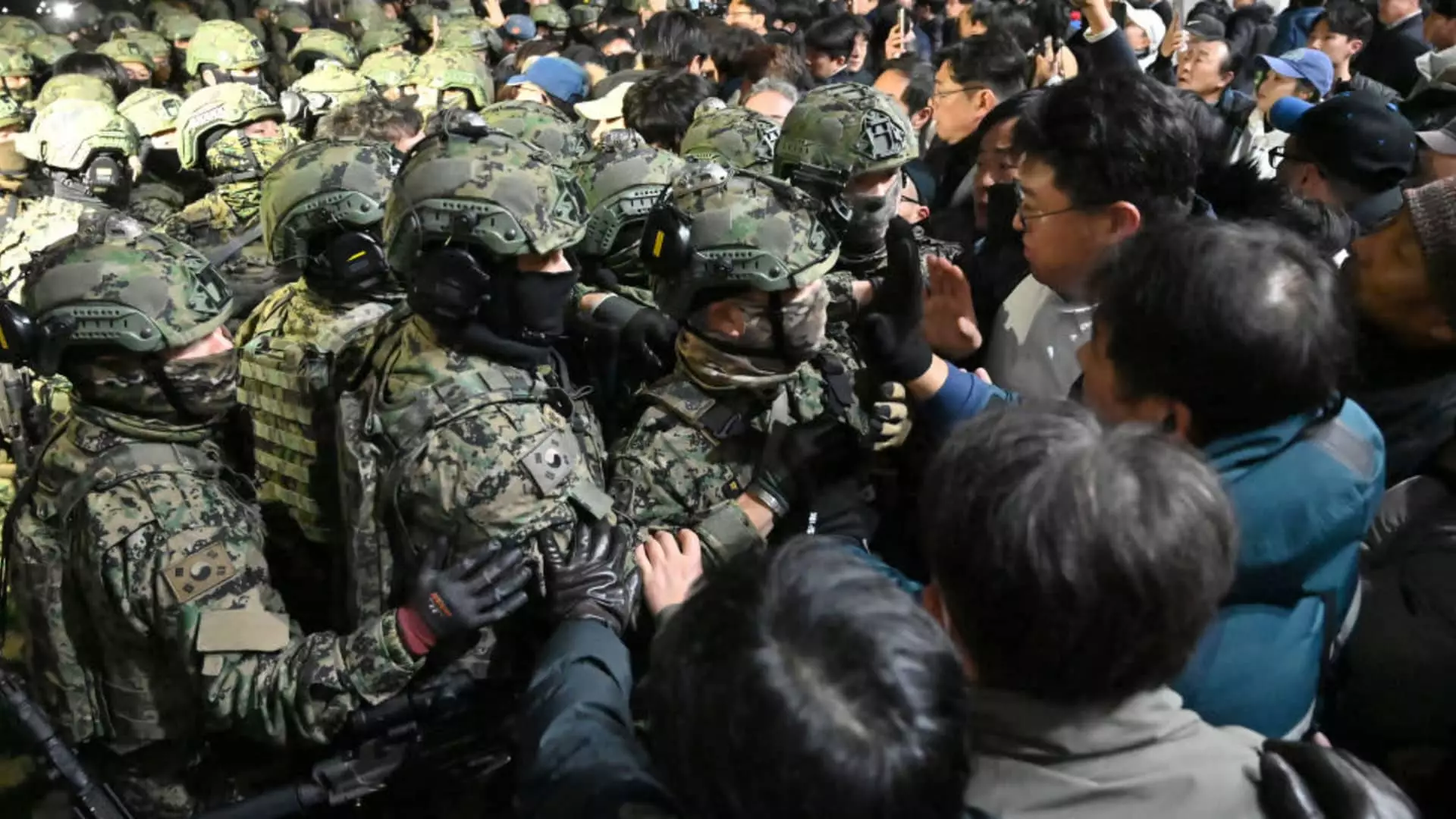On Tuesday, financial markets in South Korea experienced a significant rollercoaster effect, triggered by intense political developments. President Yoon Suk Yeol’s abrupt decision to issue and subsequently lift a martial law decree has sent shockwaves through the trading landscape, raising alarm over the potential implications for stability in an economy ranking as the thirteenth largest globally. The iShares MSCI South Korea ETF, which comprises over 90 prominent companies within the region, initially plummeted by 7%, reaching a disconcerting 52-week low. However, after the National Assembly’s swift intervention to repeal this emergency declaration, the ETF trimmed its losses to roughly 1.8%, yet remained set for its fifth consecutive day of decline.
The volume of trading activity surged to unprecedented levels, with over 35 million shares exchanged, dwarfing the 30-day average trading numbers by a factor of more than ten. This unusual trading behavior reflects not only investor anxiety but also a broader sense of uncertainty surrounding President Yoon’s governance during this tumultuous period. Major corporations were significantly affected; notably, Korea Electric Power’s American depositary receipts (ADRs) fell by 5%. Additionally, Coupang, a leading player in the South Korean e-commerce space, saw its shares decrease by 6%, while KT Corp, previously known as Korea Telecom, experienced a decline of around 3%. Posco, an essential steel manufacturer in the country, was not spared, with shares down over 6%.
The rapid sequence of events began when President Yoon accused opposition parties of harboring sympathies for North Korea, a claim that added layers of complexity to an already fragile political landscape. Just hours after the martial law was imposed, a decisive majority of lawmakers in the National Assembly, totaling 190 out of 300, convened to challenge Yoon’s decree, showcasing robust institutional resistance against authoritarian measures. The martial law edict, which restricts political activities and prohibits acts that could “incite social disorder,” marks the first instance of such a declaration since 1980. This historical context underscores the gravity of the situation as citizens and investors alike grapple with the potential return to military influence in governance.
In a statement from the White House National Security Council, the U.S. administration assured that it was closely monitoring developments, reflecting international apprehension regarding South Korea’s political trajectory. As the atmosphere in Seoul remains charged, the Korea Exchange announced an emergency meeting to formulate responses, adding further to speculation about future market operations.
As the dust settles from this political volatility, the effects on currency were also noteworthy, with the U.S. dollar appreciating by 1.9% against the South Korean won. This currency fluctuation points to deteriorating confidence in South Korea’s economic stability during a crucial period. Investors face a delicate balancing act; while the lifting of the martial law has provided a temporary reprieve, concerns linger over the potential for ongoing instability. A watchful eye on legislative actions and global market reactions will be essential as South Korea navigates these challenging waters, indicating that the financial landscape may continue to reflect the political climate for the foreseeable future.

